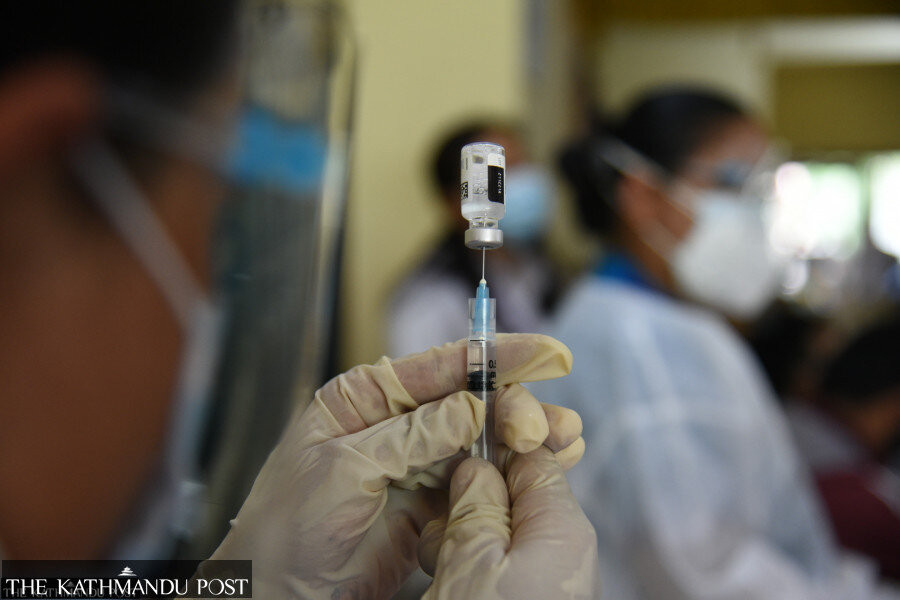Health
UN body to assess Nepal’s vaccine management practices
Nepal strengthened vaccine cold chain significantly following the Covid outbreak. It can currently store 336,838 litres of vaccine at 2 to 8 degrees Celsius and 20,564 litres at minus 15 to 25 degrees Celsius.
Post Report
Nepali health authorities are set to assess the vaccine supply chain’s strengths and weaknesses using the World Health Organisation’s tools to evaluate effective vaccine management.
Officials said that the United Nations Children’s Fund will carry out an assessment at all levels within the ongoing fiscal year.
“We are committed to ensuring safe and effective vaccines for our populations and have made various improvements,” said Dr Abhiyan Gautam, chief of the Immunisation Section at the Family Welfare Division under the Department of Health Services. “The upcoming assessment will show the actual strengths and weaknesses in our existing supply chain. We will make improvements accordingly as per the report.”
Effective vaccine management practices are initiatives that monitor and assess the vaccine supply chain system to identify its strengths and weaknesses at all levels. Health officials say that the WHO’s assessment tools and procedures will be employed to assess supply chain functions at all four levels—central store, provincial store, and stores in districts, and local units.
Cold chain managers will be interviewed to learn about existing practices in facility operations, facility management, and immunisation programmes.
“An effective vaccine management assessment is crucial for improving and strengthening our immunisation supply chain,” said Gautam. “Our vaccine storage capacity has also increased compared to the past. “This study will help us fix the loopholes in vaccine supply chain and storage practices, if there are any.”
Officials say that the assessment will study practices such as temperature management, storage and transportation capacity, facility infrastructures, equipment, maintenance and repair, stock management, and waste management.
Nepal has strengthened the vaccine cold chain significantly following the Covid outbreak. The government has sought help from various aid agencies to improve vaccine cold chain systems, including proper storage facilities such as cold rooms, refrigerators, freezers in vaccine storage facilities, refrigerator containers for transportation, and cold boxes, among other supportive equipment.
Officials said that before Covid, the country had only 122,110 litres of vaccine storage capacity at 2 to 8 degrees Celsius and 7,692 litres at minus 15 to 25 degrees Celsius. The country can currently store 336,838 litres of vaccine at 2 to 8 degrees Celsius and 20,564 litres at minus 15 to minus 25 degrees Celsius, meaning vaccine storage capacity has increased nearly threefold.
Officials say several walk-in coolers, refrigerated trucks, solar-driven vaccine refrigerators, thousands of long-range vaccine carriers, and cold boxes to ensure proper storage, management and transportation of vaccines have also been brought for effective management of vaccines.
Vaccine cold chain systems include proper storage facilities such as cold rooms, refrigerators, freezers in vaccine storage facilities, refrigerator containers for transportation and cold boxes, among other supportive equipment.




 9.89°C Kathmandu
9.89°C Kathmandu














